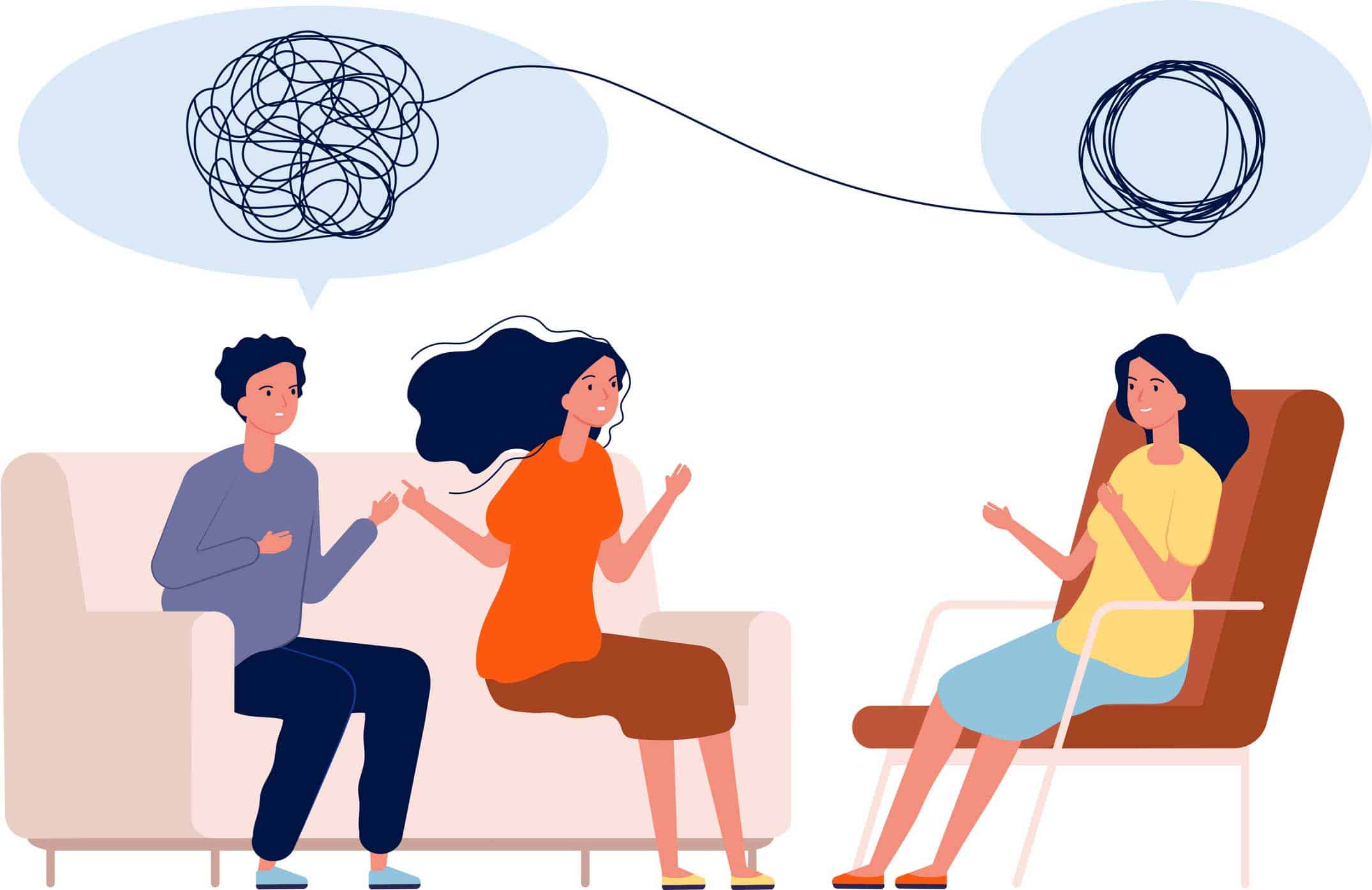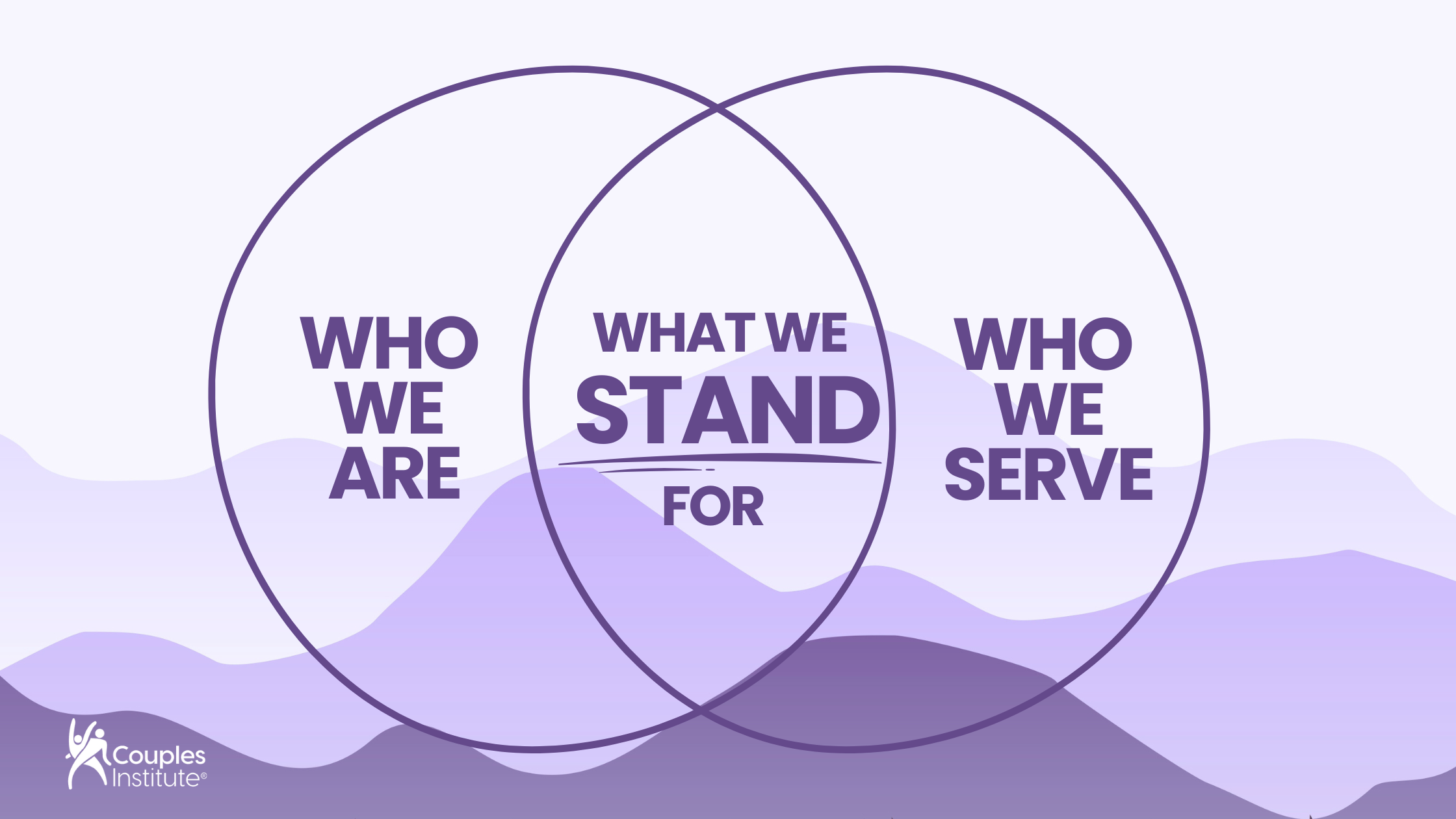
Pete and Ellyn’s Origin Story, or “How I Met Your Mother”
[Editor’s note: this love letter went to our email list on Valentine’s Day and it seemed good enough to give it a permanent home on

They say the right tool makes all the difference.
But what if the tool you’re using wasn’t designed for the job?
Cognitive Behavioral Therapy (CBT) and Dialectical Behavioral Therapy (DBT) are good frameworks. They're structured. They make easy sense. They help organize thinking, track patterns, and offer concrete strategies.
But if you’ve ever tried to use them with a help-rejecting, passive aggressive partner in couples therapy, you know the truth:
Agreements are made – and then broken or quietly ignored.
This isn’t just resistance. It’s a personality dynamic built to sidestep accountability without ever appearing overtly hostile.
So why aren’t CBT and DBT sufficient for long-term enduring change?
Both models are grounded in a premise: the client wants to get better. Maybe they don’t know how, maybe they lack tools – but it is assumed the motivation is there.
Passive aggressive partners often say they want help. They may nod along. But they dodge change like it’s radioactive.
You give them a skill – they forget it.
You suggest a new frame – they twist it.
You offer insight – they smile, agree, and do the opposite.
CBT assumes that if you change the thought, the behavior will follow. But these clients are experts at looking compliant while staying inert. You never quite know if they’re lying to you – or lying to themselves.
CBT and DBT ask clients to name what they feel. To track thoughts. To label distortions.
But passive aggressive partners often aren’t in touch with their real feelings. Or, more accurately – they won’t be. Vulnerability feels dangerous. They default to fog and deflection.
Even when you slow things down, even when you ask directly, the response is murky:
“I don’t know.”
“It’s not a big deal.”
“That’s just how I am.”
This isn’t emotional unawareness. It’s emotional camouflage. And CBT tools won’t pierce it unless you know what you’re looking to uncover.
At its heart, passive aggressive behavior is a developmental problem. It stems from a deep conflict between dependency and autonomy – wanting connection while fiercely avoiding the vulnerability it requires. It also develops from a fear of feeling desire.
These clients are stuck in a bind. They fear punishment from caring and desiring closeness and connection.
“I’ll ask for help, but if you actually try to help me – I’ll push you away.”
DBT can teach distress tolerance. CBT can challenge distortions. But neither goes far enough in helping therapists navigate and build new emotional capacities.
You’re not just addressing behaviors. You’re working with internal structures that block growth.
And without a developmental roadmap, you’re left reacting. Chasing symptoms. Spinning your wheels.
If you’ve ever walked out of a session with these couples thinking, “Why do I care more than they do?”
…You're not alone. And you’re not failing.
You’re just facing a dynamic that needs a very skilled 3rd person to disrupt it.
There is a way to work effectively. To get traction without burnout.
To lead without getting emotionally outmaneuvered.
To confront without shaming.
To invite without cornering.
To frame growth as strength.
And make hope feel safer than hiding.
What are your successes or frustrations with the passive-aggressive/over-functioning dynamic? I look forward to reading your thoughts.
If this is a dynamic you’d like to feel more confident working with, Dr. Pete Pearson is hosting a 2-hour training webinar on June 27 called Leading Without Pleading: New Strategies for Making Progress with the Passive Aggressive Client and their Over-functioning Partner. If you're tired of working harder than your clients, this is an excellent place to start.
"*" indicates required fields
 We respect your privacy.
We respect your privacy.
"*" indicates required fields
 We respect your privacy.
We respect your privacy.
[Editor’s note: this love letter went to our email list on Valentine’s Day and it seemed good enough to give it a permanent home on

As we look into the New Year, I want to share with you very clearly what Couples Institute stands for, now and always. Most of

My passion for educating couples early in their committed relationships was initially driven by personal experience. When I married at 22, my husband and I